Why Getting Vaccinated Doesn’t Mean You Should Toss Out the Mask — Yet
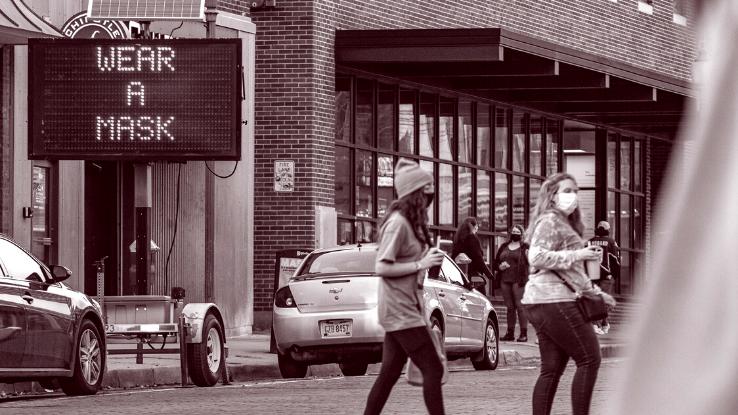
We’ve been living with COVID-19 precautions like mask-wearing and social distancing for over a year. At first, the COVID-19 vaccine rollout was like a ray of light at the end of a dark tunnel, offering hope of things “returning to normal” in the United States. As of May 13th, the CDC stated that if one has been fully vaccinated and waited two weeks, they may resume all activities that one did prior to the pandemic without a mask. Due to rising cases of COVID-19 and its varients, masks are now being recommended for all individuals, vaccinated or not, until we get things under control.
The pandemic has been hard and we should be proud of our progress, but we aren’t home free just yet. As of early August, 58% of Americans have gotten at least one dose of the COVID-19 vaccine. That’s over 166.5 million people! In order to reach herd immunity, experts believe that there needs to be a vaccination rate closer to 90% or higher to reach herd immunity.
The number of people getting vaccinated is started to increase again. The Pfizer vaccine was approved for distribution in 12-15 year olds, and the company is testing the vaccine on the 2–11 age bracket. Until we get closer to reaching herd immunity, however, and until it’s safe for even more age groups to receive these vaccines, it’s important to follow mandates and guidelines set by your state and local officials and the businesses you support during this transitional period. While this news is thrilling, you’ll want to hold onto your mask a little bit longer. Here’s why.
Do Vaccinated People Need to Wear Masks?
So, once you get your vaccine, can you finally ditch your mask, grab a table at your favorite restaurant and hug your best friend? Those things might not be so far-fetched anymore. While it’s true that the COVID-19 vaccines, which all boast high efficacy rates, aren’t foolproof, the main aim is to vaccinate enough people to reach herd immunity, thus reducing the strain on our healthcare systems and lowering the risk of transmission.
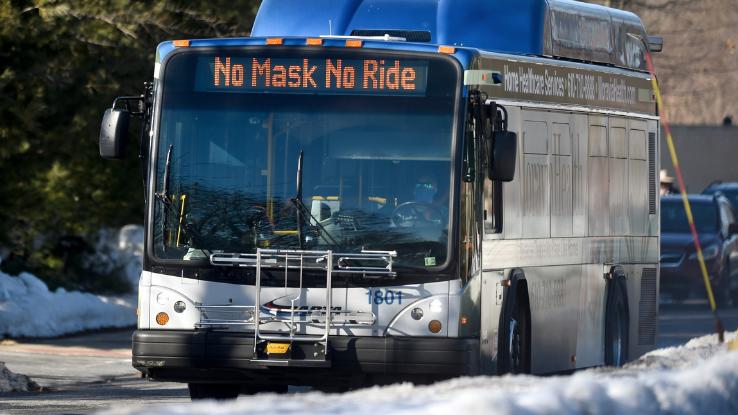
Throughout 2021, the CDC has been aiming to help Americans navigate this ever-shifting landscape by releasing new guidelines for fully vaccinated people to follow. Updates to these guidelines remain ongoing as researchers continue to learn more, and the recommendations themselves may have shifted somewhat since you last reviewed them. People who are fully vaccinated — meaning it’s been at least two weeks since they received the second dose of their two-dose Pfizer or Moderna vaccine or their single shot of the one-dose Janssen vaccine — can do the following, based on CDC guidelines:
- Resume normal activities they enjoyed before the pandemic
- Resume activities without wearing a mask or staying 6 feet apart, except where they’re required to by law or based on individual facility guidelines about protective measures
- Travel within the U.S. without quarantining or getting tested for COVID-19 before or after traveling
However, the CDC still encourages folks to take a cautious approach in other scenarios. In the spirit of caution, fully vaccinated people should consider:
- Remaining cautious and vigilant in public by “wearing a well-fitted mask and physical distancing”
- Wearing masks and practicing social distancing when coming into contact with unvaccinated people or folks who live with an at-risk, unvaccinated person
- Masking up at grocery stores, gyms and other indoor settings
- Masking up and maintaining distance when visiting with unvaccinated folks from multiple households
- Avoiding medium- and large-scale gatherings
- Getting a COVID-19 test if they experience symptoms
Individuals should still adhere to their employers’ guidance, respect the rules businesses put in place, and follow CDC travel requirements and recommendations. For more information, you can find the most up-to-date recommendations on the CDC website.
Additionally, the WHO has updated its guidelines about wearing masks. If you live in a community where COVID-19 is spreading, this agency recommends you continue to wear a mask in public and around people who aren’t members of your household. To do so properly, follow all of these recommendations:
- Choose a mask that covers your nose, mouth and chin and fits your face securely.
- Avoid loose-fitting masks that have gaps around the edges or that fall down your face.
- Don’t use masks with valves.
- Wash your hands before putting your mask on and after taking it off.
- Wash your hands any time you touch your mask while you’re wearing it.
- Wash fabric masks daily after wearing them.
- Dispose of single-use masks in the garbage after wearing them.
- If you’re planning to reuse a mask on the same day, store it in a clean plastic bag after removing it.
- Remove your mask using the straps behind your ears. If possible, don’t touch the section that covers your face.
Vaccinated Individuals May Be “Silent Spreaders”
Given how eager we all are for life to regain some sense of normalcy, hearing that masks are a must even after being immunized can feel a bit disheartening. But, believe it or not, even if you’ve received one or both doses needed to be considered fully vaccinated, one of the best ways to keep others safe is to keep that mask on — and practice physical distancing. Still, it’s essential to understand a bit about why this is the case, and why vaccinated folks can still spread COVID-19 to others.
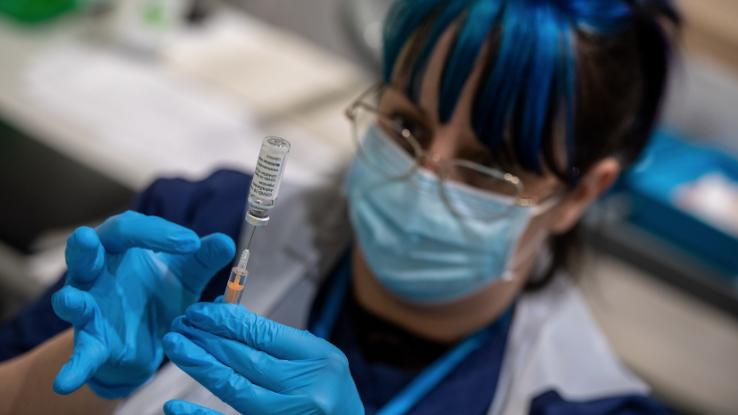
Put simply, when the vaccine is injected into your muscle, that’s where the virus-fighting antibodies first take root. Scientists believe that, on occasion, the virus may happen to bloom somewhere else, such as a person’s nasal cavity. In cases like these, the antibody hasn’t arrived to the right area of their body yet to fight the virus because it’s still working against a COVID-19 occurrence deeper in their body. In those cases, an individual may be able to expel droplets containing the virus, thus infecting those around them.
In other cases, individuals may experience mild, or so-called “silent,” symptoms of COVID-19, especially if they haven’t received both vaccine doses in a two-dose regimen. With this in mind, mask-wearing, physical distancing, avoiding folks outside of your household who aren’t vaccinated, and congregating (if you must) in well-ventilated spaces all continue to be effective ways to slow (or stop) the spread.
It’s Unclear How Long Immunity Lasts
Both the Pfizer and Moderna vaccines have high efficacy rates, coming in at 95% and 94.5% respectively after both doses are received. Additionally, 14 days after vaccination, the Janssen vaccine is roughly 77% effective in preventing severe or critical forms of COVID-19; after 28 days, that effectiveness jumps to about 85%. While it’s clear that the vaccines are effective, what’s not clear is how long they’ll maintain this level of protection.
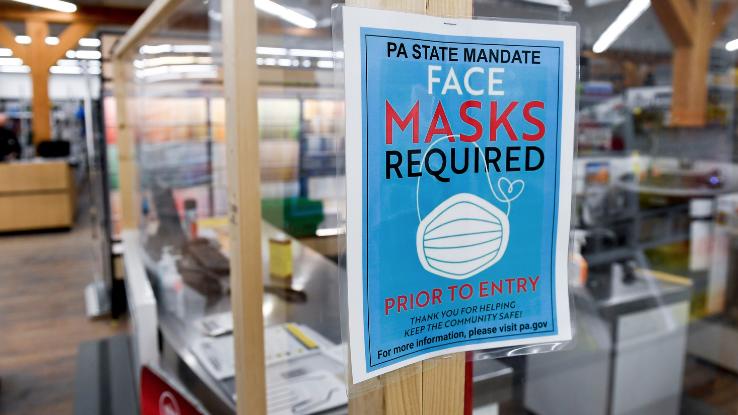
In fact, this uncertainty surrounding how long a person’s immunity lasts is the same reason that you should get vaccinated even if you’ve already had COVID-19. A lack of everlasting immunity is pretty par-for-the-course when it comes to how immunizations work, which is precisely why you’re urged to get a flu shot every year and why you need boosters for vaccines that were first administered during childhood. “Both natural immunity and vaccine-induced immunity are important aspects of COVID-19 that experts are trying to learn more about,” the Centers for Disease Control and Prevention (CDC) has stated. “And [we] will keep the public informed as new evidence becomes available.”
Additionally, scientists are still monitoring how approved vaccines respond to the COVID-19 variants that have begun cropping up around the globe. So far, Moderna’s experts have stated that they believe the vaccines will be effective in fighting off these variants — although how effective, and for how long, remains to be seen. With this in mind, the company is researching how future boosters might help target these new strains.
How the Phased Vaccine Rollout Impacts COVID-19 Etiquette
Foremost, the way the vaccine is being rolled out plays into all of this. Both the Pfizer and Moderna vaccines require two rounds of shots, so, if you’ve only had the first round, the vaccine won’t be as effective at protecting you until you get your full dose. Even with the one-dose Janssen vaccine, the effectiveness increases over time. But your vaccination status may not align with someone else’s, especially given that eligibility requirements shift from state-to-state. To maximize protection from the Delta variant and prevent possibly spreading it to others, wear a mask indoors in public if you are in an area of substantial or high transmission.
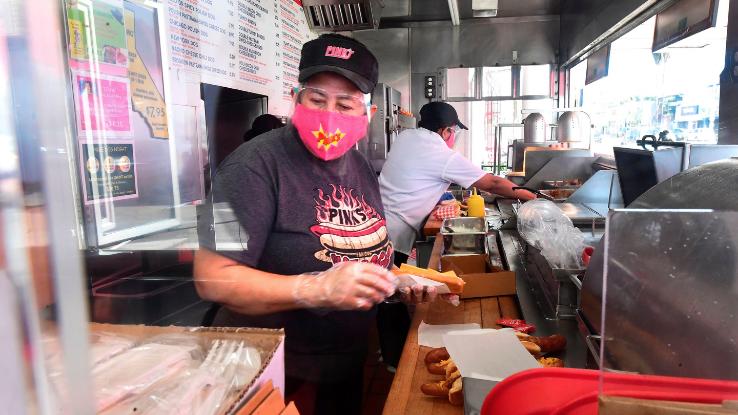
The differences between us as individuals, biologically speaking, may also impact how we respond to the COVID-19 vaccine. For example, older folks are more likely to suffer from severe, life-threatening cases of COVID-19, partially due to their age. Similarly, vaccines can have a harder time doing what they need to do in older immune systems. (However, myths have been circulating, too. For example, larger bodies don’t need more of the vaccine to develop immunity; vaccines develop antibodies and certainly don’t work like pain-relieving drugs.)
As of August 9, 2021, nine states as well as Puerto Rico have implemented indoor mask mandates. California, Hawaii, Illinois, Connecticut, Louisiana, Nevada, New Mexico, New York and Washington will be requiring folks to mask up indoors regardless of vaccination status. This list may grow if cases continue to rise.
Long story short, maintain that “abundance of caution” mindset. Sure, it can be a pain to have a mask on you at all times in public. And it can be difficult to continue to isolate yourself from friends and family who may have a different vaccination status than you. But it’s important that we all hang in there.
After all, as unprecedented as the whole pandemic is, researchers have also made an unprecedented amount of progress in researching COVID-19 and developing highly effective vaccines in under a year. And while the availability of COVID-19 vaccines hasn’t exactly heralded the end of this public health crisis yet, it has brought us a giant leap closer to a safer future.





